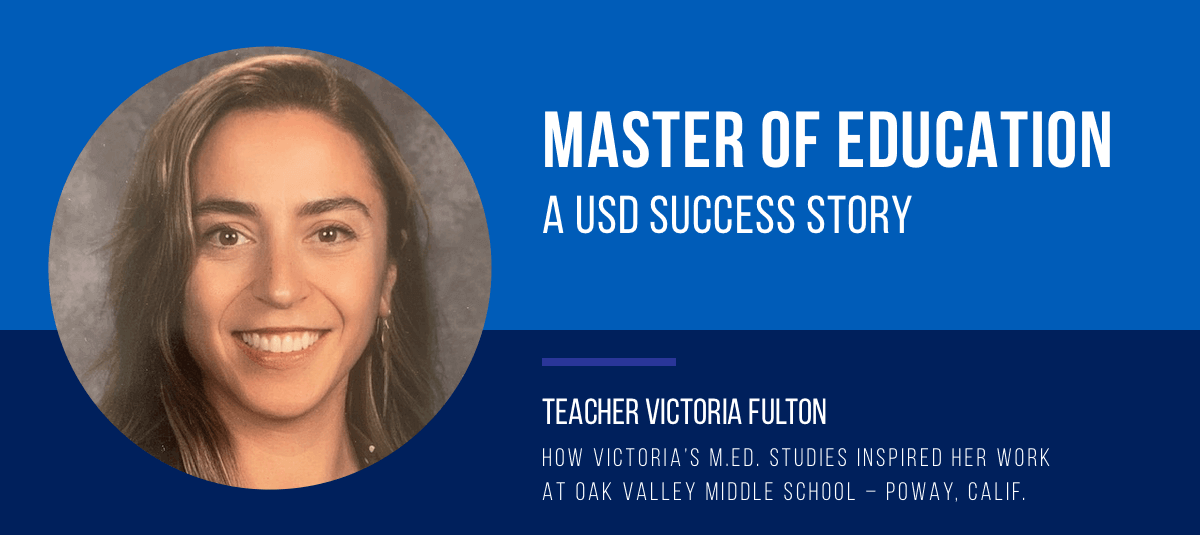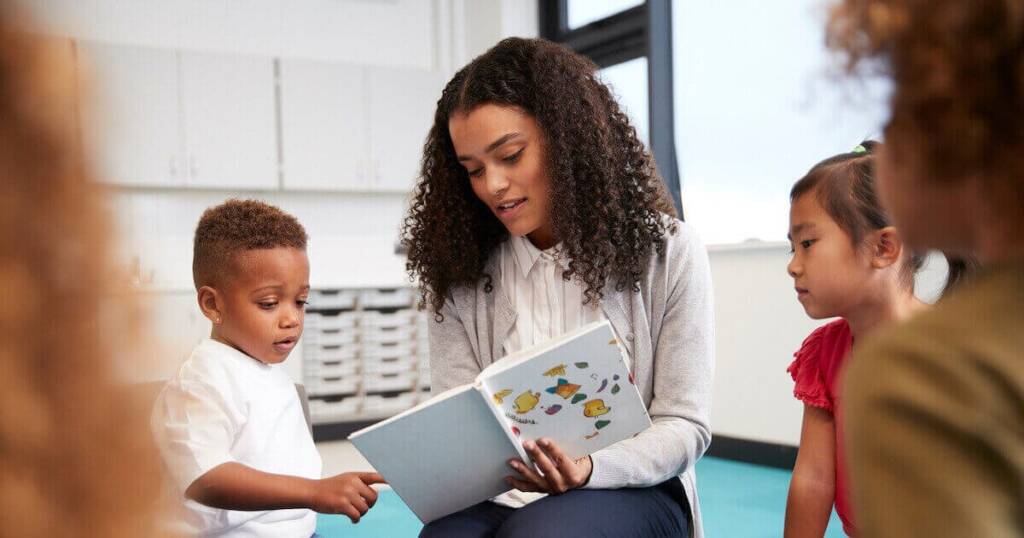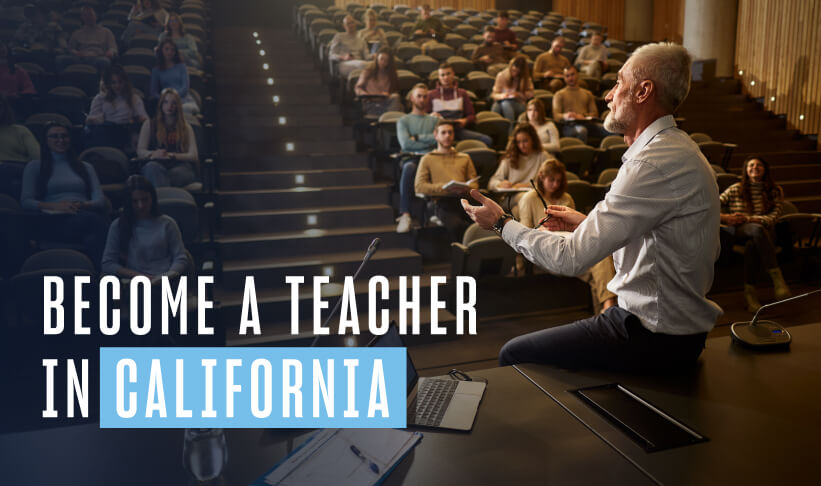Have you ever wondered if earning your Master of Education degree would truly inspire your work in the classroom?
Well, here’s a window into how the University of San Diego’s online MEd program provided the inspiration for one USD graduate student to launch a program initiative that is now transforming the educational lives of her traditional students and students with special needs.
Applying USD MEd Lessons at Oak Valley Middle School
Victoria Fulton teaches humanities to seventh-graders at Oak Valley Middle School in Poway, California. She was taking an MEd course on co-teaching with an emphasis on inclusion led by Professor Maya Kalyanpur when she had a vision for launching a new co-teaching initiative with a colleague who taught students with special needs.
[RELATED] 10 Traits of Successful School Leaders >>
“I started to think about what inclusion looked like on our campus,” she said. “And while we do pride ourselves that students are at the heart of what we do, and we’re very student centered, our Special Education classroom is contained and kind of hidden away toward the back of the building.”
Working with Andrew Middleton, a 6-8 grade special education teacher focused on humanities, Victoria said the two teachers developed a program designed to “make sure that all students on campus felt included” and, in the process, “destigmatize what disability has traditionally looked like and what it’s been taught to be.”
Their goal has been to create a classroom environment that supports the needs of both traditional students and students with special needs. “It’s still the same content,” said Victoria, “but Andrew finds these brilliant ways to make it accessible for his students as well.”
For his part, Andrew emphasizes the concept of “access” in the special educator’s role, developing creative ways to “help students take information from a learning objective” while also taking into account “their cultural, social, emotional and behavioral needs.”
In the process, the education of the traditional students takes on an added “humanizing experience” as they collaborate with and build empathy toward their classmates. “The relationship-building aspect was something I really wanted to convey to my kids,” said Victoria.
Additionally, Andrew observed that, “When you increase the trust with underserved student populations, you see more access and opportunity to develop skills and participate in the world” in ways that they might otherwise be inhibited from experiencing.
In short, he said, when you “remove the cloud or veil of ‘can’t’” while maintaining an appropriate level of academic rigor and expectation, “you’re going to see a lot of great things happen.”
That includes the students themselves discovering their own ways of putting the concept of inclusion into practice, with a level of maturity that has been heartening to the two educators who are guiding the process.
A Master’s Degree Program That Connects to Your Work in the Classroom
The idea of a supportive learning environment also connects to Victoria’s experience in her master’s degree studies at the University of San Diego.
As someone who commutes to her job as a teacher while raising a family, she is appreciative of the opportunity to tackle her studies on her own schedule while participating in a program that is well-known for being academically rigorous.
“I was a little bit nervous to tackle an online learning program. The first semester was hard,” she said. “I have found it just as demanding and powerful and inspiring as being in a classroom,” thanks in part to an online learning community of fellow students that has been “insightful and critical.”
Her instructors have also been consistently inspiring, Victoria added. “My professors have been personal, approachable, reasonable, understanding and targeted in feedback. The strategies I’m gaining from them have also improved my clarity, my expectation setting and my communication with students and their families,” she said. “Every class has inspired me to take a stand, take action and implement my learning into my classroom. Content aside, the pedagogy that I’m absorbing is making me a better teacher every day.”
[RELATED] Teachers: Is There a Master’s Degree in Your Future? >>
While encouraging anyone who is considering earning their Master of Education to take a close look at the USD program, Victoria also speaks highly of “the common of values I hold with that of the university — expanding knowledge, creating inclusive communities, and preparing leaders who are dedicated to ethical and compassionate service.”
* * *
The University of San Diego’s online Master of Education program features five distinct specializations with an emphasis on both long-term professional development and immediate practical classroom applications. Visit the MEd degree page or contact a USD advisor to learn more about how the program may align with your career goals.




